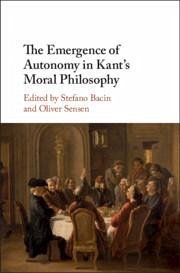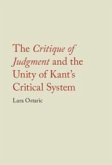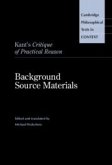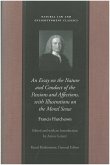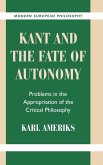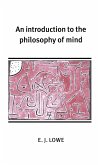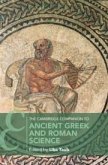The Emergence of Autonomy in Kant's Moral Philosophy
Herausgeber: Bacin, Stefano; Sensen, Oliver
The Emergence of Autonomy in Kant's Moral Philosophy
Herausgeber: Bacin, Stefano; Sensen, Oliver
- Gebundenes Buch
- Merkliste
- Auf die Merkliste
- Bewerten Bewerten
- Teilen
- Produkt teilen
- Produkterinnerung
- Produkterinnerung
A thorough study of why Kant developed the concept of autonomy, one of his central legacies for contemporary moral thought.
Andere Kunden interessierten sich auch für
![The Critique of Judgment and the Unity of Kant's Critical System The Critique of Judgment and the Unity of Kant's Critical System]() Lara OstaricThe Critique of Judgment and the Unity of Kant's Critical System99,99 €
Lara OstaricThe Critique of Judgment and the Unity of Kant's Critical System99,99 €![Kant's Critique of Practical Reason Kant's Critique of Practical Reason]() Michael WalschotsKant's Critique of Practical Reason108,99 €
Michael WalschotsKant's Critique of Practical Reason108,99 €![An Essay on the Nature and Conduct of the Passions and Affections, with Illustrations on the Moral Sense An Essay on the Nature and Conduct of the Passions and Affections, with Illustrations on the Moral Sense]() Francis HutchesonAn Essay on the Nature and Conduct of the Passions and Affections, with Illustrations on the Moral Sense22,99 €
Francis HutchesonAn Essay on the Nature and Conduct of the Passions and Affections, with Illustrations on the Moral Sense22,99 €![The Bloomsbury Handbook of Spinoza The Bloomsbury Handbook of Spinoza]() The Bloomsbury Handbook of Spinoza171,99 €
The Bloomsbury Handbook of Spinoza171,99 €![Kant and the Fate of Autonomy Kant and the Fate of Autonomy]() Karl AmeriksKant and the Fate of Autonomy96,99 €
Karl AmeriksKant and the Fate of Autonomy96,99 €![An Introduction to the Philosophy of Mind An Introduction to the Philosophy of Mind]() E. J. LoweAn Introduction to the Philosophy of Mind152,99 €
E. J. LoweAn Introduction to the Philosophy of Mind152,99 €![The Cambridge Companion to Ancient Greek and Roman Science The Cambridge Companion to Ancient Greek and Roman Science]() The Cambridge Companion to Ancient Greek and Roman Science105,99 €
The Cambridge Companion to Ancient Greek and Roman Science105,99 €-
-
-
A thorough study of why Kant developed the concept of autonomy, one of his central legacies for contemporary moral thought.
Produktdetails
- Produktdetails
- Verlag: Cambridge University Press
- Seitenzahl: 238
- Erscheinungstermin: 25. Oktober 2018
- Englisch
- Abmessung: 236mm x 191mm x 15mm
- Gewicht: 454g
- ISBN-13: 9781107182851
- ISBN-10: 1107182859
- Artikelnr.: 52527844
- Herstellerkennzeichnung
- Libri GmbH
- Europaallee 1
- 36244 Bad Hersfeld
- gpsr@libri.de
- Verlag: Cambridge University Press
- Seitenzahl: 238
- Erscheinungstermin: 25. Oktober 2018
- Englisch
- Abmessung: 236mm x 191mm x 15mm
- Gewicht: 454g
- ISBN-13: 9781107182851
- ISBN-10: 1107182859
- Artikelnr.: 52527844
- Herstellerkennzeichnung
- Libri GmbH
- Europaallee 1
- 36244 Bad Hersfeld
- gpsr@libri.de
Introduction Stefano Bacin and Oliver Sensen; 1. How is moral obligation
possible? Kant's 'principle of autonomy' in historical context Heiner F.
Klemme; 2. Anticipations of autonomy: freedom, obligation, and the concept
of a world in Kant's writings of the Mid-1750s to Mid-1760s Susan Meld
Shell; 3. Autonomy and moral rationalism: Kant's criticisms of
'rationalist' moral principles (1762-85) Stefano Bacin; 4. Autonomy and
moral empiricism: Kant's criticism of sentimentalist moral principles
(1762-85) Georg Mohr; 5. Elements of autonomy in Kant's Lectures on Ethics
(1770-80) Oliver Sensen; 6. Emerging autonomy: dealing with the
inadequacies of the 'canon' of the Critique of Pure Reason (1781) Jens
Timmermann; 7. Autonomy and the legislation of laws in the Prolegomena
(1783) Eric Watkins; 8. How can freedom be a law to itself? The concept of
autonomy in the 'introduction' to the Naturrecht Feyerabend lecture notes
(1784) Marcus Willaschek; 9. Moral autonomy as political analogy:
self-legislation in Kant's Groundwork and the Feyerabend lectures on
natural law (1784) Pauline Kleingeld; 10. What emerged: autonomy and
heteronomy in the Groundwork and second Critique Andrews Reath; 11. Kant's
threefold autonomy after the Groundwork: reason's own law-giving as our own
cosmopolitan law-giving Pierre Keller.
possible? Kant's 'principle of autonomy' in historical context Heiner F.
Klemme; 2. Anticipations of autonomy: freedom, obligation, and the concept
of a world in Kant's writings of the Mid-1750s to Mid-1760s Susan Meld
Shell; 3. Autonomy and moral rationalism: Kant's criticisms of
'rationalist' moral principles (1762-85) Stefano Bacin; 4. Autonomy and
moral empiricism: Kant's criticism of sentimentalist moral principles
(1762-85) Georg Mohr; 5. Elements of autonomy in Kant's Lectures on Ethics
(1770-80) Oliver Sensen; 6. Emerging autonomy: dealing with the
inadequacies of the 'canon' of the Critique of Pure Reason (1781) Jens
Timmermann; 7. Autonomy and the legislation of laws in the Prolegomena
(1783) Eric Watkins; 8. How can freedom be a law to itself? The concept of
autonomy in the 'introduction' to the Naturrecht Feyerabend lecture notes
(1784) Marcus Willaschek; 9. Moral autonomy as political analogy:
self-legislation in Kant's Groundwork and the Feyerabend lectures on
natural law (1784) Pauline Kleingeld; 10. What emerged: autonomy and
heteronomy in the Groundwork and second Critique Andrews Reath; 11. Kant's
threefold autonomy after the Groundwork: reason's own law-giving as our own
cosmopolitan law-giving Pierre Keller.
Introduction Stefano Bacin and Oliver Sensen; 1. How is moral obligation
possible? Kant's 'principle of autonomy' in historical context Heiner F.
Klemme; 2. Anticipations of autonomy: freedom, obligation, and the concept
of a world in Kant's writings of the Mid-1750s to Mid-1760s Susan Meld
Shell; 3. Autonomy and moral rationalism: Kant's criticisms of
'rationalist' moral principles (1762-85) Stefano Bacin; 4. Autonomy and
moral empiricism: Kant's criticism of sentimentalist moral principles
(1762-85) Georg Mohr; 5. Elements of autonomy in Kant's Lectures on Ethics
(1770-80) Oliver Sensen; 6. Emerging autonomy: dealing with the
inadequacies of the 'canon' of the Critique of Pure Reason (1781) Jens
Timmermann; 7. Autonomy and the legislation of laws in the Prolegomena
(1783) Eric Watkins; 8. How can freedom be a law to itself? The concept of
autonomy in the 'introduction' to the Naturrecht Feyerabend lecture notes
(1784) Marcus Willaschek; 9. Moral autonomy as political analogy:
self-legislation in Kant's Groundwork and the Feyerabend lectures on
natural law (1784) Pauline Kleingeld; 10. What emerged: autonomy and
heteronomy in the Groundwork and second Critique Andrews Reath; 11. Kant's
threefold autonomy after the Groundwork: reason's own law-giving as our own
cosmopolitan law-giving Pierre Keller.
possible? Kant's 'principle of autonomy' in historical context Heiner F.
Klemme; 2. Anticipations of autonomy: freedom, obligation, and the concept
of a world in Kant's writings of the Mid-1750s to Mid-1760s Susan Meld
Shell; 3. Autonomy and moral rationalism: Kant's criticisms of
'rationalist' moral principles (1762-85) Stefano Bacin; 4. Autonomy and
moral empiricism: Kant's criticism of sentimentalist moral principles
(1762-85) Georg Mohr; 5. Elements of autonomy in Kant's Lectures on Ethics
(1770-80) Oliver Sensen; 6. Emerging autonomy: dealing with the
inadequacies of the 'canon' of the Critique of Pure Reason (1781) Jens
Timmermann; 7. Autonomy and the legislation of laws in the Prolegomena
(1783) Eric Watkins; 8. How can freedom be a law to itself? The concept of
autonomy in the 'introduction' to the Naturrecht Feyerabend lecture notes
(1784) Marcus Willaschek; 9. Moral autonomy as political analogy:
self-legislation in Kant's Groundwork and the Feyerabend lectures on
natural law (1784) Pauline Kleingeld; 10. What emerged: autonomy and
heteronomy in the Groundwork and second Critique Andrews Reath; 11. Kant's
threefold autonomy after the Groundwork: reason's own law-giving as our own
cosmopolitan law-giving Pierre Keller.

